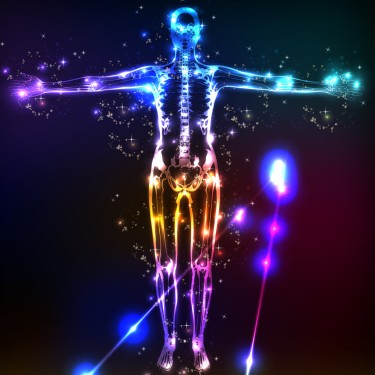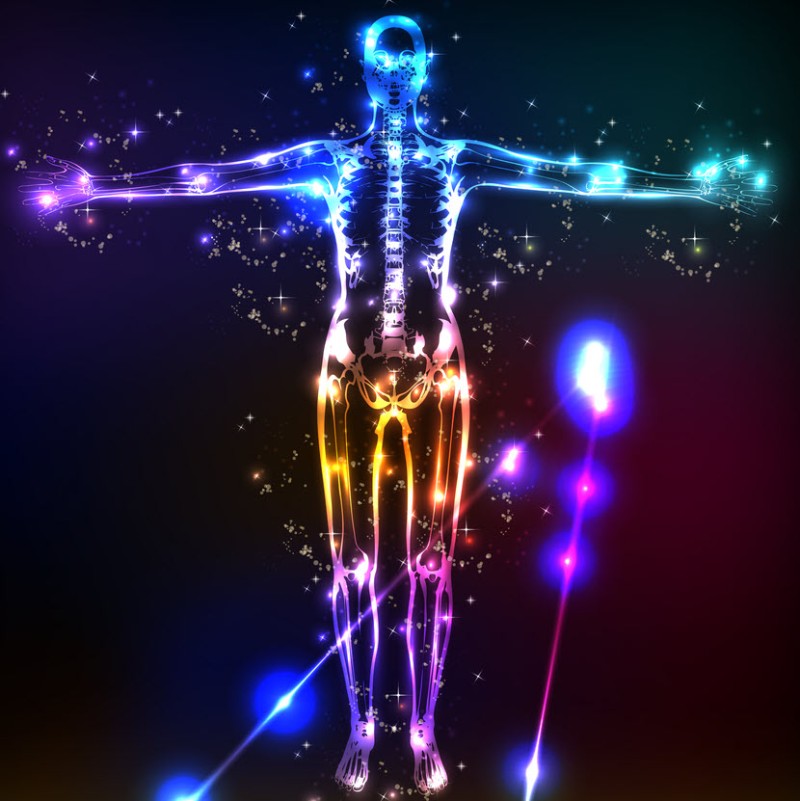
The Medical Benefit of the Altered State
While browsing Reddit during my cannabis research, I stumbled upon a thought-provoking post by a user we'll call "Anonymous." Their stance was clear: marijuana will soon be viewed as negatively as tobacco, complete with cancer warnings and a decline in its perceived medical benefits. Anonymous argued that the push for medical marijuana is either naive or driven by profit-seeking companies, drawing parallels to past tobacco industry tactics.
This article aims to delve deep into the heart of this debate, exploring how cannabis actually interacts with our bodies and why it seems to offer such a wide range of healing properties. We'll journey through the fascinating world of the endocannabinoid system - a complex network that plays a crucial role in maintaining our body's balance.
As we unpack the science behind cannabis, we'll challenge the notion that its medical potential is merely a "fake medicinal thing." Instead, we'll explore how this plant's compounds work in harmony with our own biological systems, potentially offering relief for various conditions.
But here's where things get really interesting: what if the very "high" that some criticize is actually key to some of cannabis' therapeutic effects? What if that altered state isn't just about recreation, but about rewiring the brain and body for healing?
Buckle up, because we're about to dive into a world where molecules dance with receptors, where ancient plant wisdom meets cutting-edge science, and where the line between medicine and nature blurs in the most intriguing ways.
Setting the Stage
To understand the profound impact of cannabis on human health, we must first explore the endocannabinoid system (ECS) - a complex network of receptors and molecules spread throughout our bodies. This system plays a crucial role in maintaining homeostasis, essentially acting as a master regulator for numerous bodily functions.
The ECS helps regulate:
-
Mood and stress response
-
Sleep patterns
-
Appetite and metabolism
-
Pain sensation
-
Memory and learning
-
Immune system function
-
Inflammation
-
Cardiovascular function
-
Reproductive system
-
Bone growth and density
-
Neuroprotection
-
Digestive processes
This extensive list demonstrates why cannabis seems to affect so many aspects of our health and well-being. But to fully grasp its impact, we need to understand how the ECS develops and changes throughout our lives.
During our formative years, up until about age 25, our bodies produce an abundance of endocannabinoids - the natural compounds that interact with the ECS. This overproduction serves a vital purpose: it's building and fine-tuning the endocannabinoid system. This is precisely why many experts recommend avoiding cannabis consumption during these crucial developmental years. Introducing external cannabinoids could potentially interfere with this delicate process.
Those who experimented with cannabis in their teens might recall experiencing incredibly intense highs. This heightened sensitivity is directly related to the abundance of endocannabinoids and receptors during this period. As we mature, the experience often changes. The highs may feel different or less intense, not just due to tolerance, but because our endocannabinoid system has fully developed and our natural production has decreased significantly.
Here's where things get interesting: as we age, especially when faced with chronic stress, injuries, or other health challenges, our endocannabinoid system can become depleted. This depletion may contribute to various health issues, as the body struggles to maintain balance without its full regulatory arsenal.
This phenomenon helps explain why many older adults, particularly those trying cannabis for the first time in their 60s or beyond, report such remarkable benefits. By introducing phytocannabinoids (plant-derived cannabinoids) into their systems, they're essentially revitalizing a depleted endocannabinoid system, kickstarting its regulatory functions back into high gear.
The key to understanding this lies in the remarkable similarity between phytocannabinoids (like THC and CBD) and our body's own endocannabinoids. These plant-derived compounds fit almost perfectly into our endocannabinoid receptors, allowing them to mimic and supplement the work of our natural endocannabinoids.
Think of consuming cannabis as akin to taking a multivitamin supplement. Just as vitamins can help fill nutritional gaps and support overall health, phytocannabinoids can help replenish and support a potentially undernourished endocannabinoid system. This supplementation may help bring various bodily systems back into balance, potentially explaining the wide range of reported health benefits.
With this foundation, we can begin to appreciate the potential medical applications of cannabis. The plant's ability to interact so seamlessly with our endocannabinoid system offers a scientific basis for its reported effects on pain, inflammation, mood, and numerous other health concerns.
However, a crucial question remains: what about the psychoactive effects, the infamous "high" associated with cannabis use? Is it merely a side effect, or could it play a more significant role in the plant's therapeutic potential?
As we delve deeper into the world of cannabis and its effects on the human body and mind, we'll explore a fascinating possibility: what if the altered state of consciousness induced by cannabis is not just a recreational byproduct, but a key component of its healing power? Could the very experience that some view as problematic be an essential part of cannabis' ability to treat certain conditions?
Keep on reading as we unravel this intriguing aspect of cannabis therapy, challenging preconceptions and exploring the complex interplay between mind, body, and this ancient medicinal plant.
The Medical High
Now that we've established a foundational understanding of how cannabis interacts with our endocannabinoid system, let's delve into a more controversial aspect: the potential medical benefits of the cannabis-induced "high."
Given that the endocannabinoid system plays a crucial role in neuroprotection, it's reasonable to hypothesize that the altered state of consciousness produced by cannabis serves a purpose beyond mere recreation. In fact, this euphoric state might be a key component of cannabis' therapeutic potential.
When a person consumes cannabis and experiences a "high," their brain enters a state of enhanced neuroplasticity. Neuroplasticity refers to the brain's ability to reorganize itself by forming new neural connections. In this state, neurons become more "agile," allowing for potential rewiring of established neural pathways.
This increased neuroplasticity can be particularly beneficial for individuals suffering from conditions like PTSD. People with PTSD often have deeply ingrained neural networks associated with their trauma. The heightened neuroplasticity induced by cannabis can help them view their experiences from a different perspective, potentially breaking out of the "neuro prison" of their condition. It offers an opportunity to interrupt and reshape the negative feedback loops that perpetuate their trauma responses. While this process can be helpful on its own, it becomes even more effective when combined with proper therapy and guidance.
The benefits of this cannabis-induced neuroplasticity extend beyond PTSD. It may also prove helpful in treating other psychological conditions such as depression, anxiety disorders, and eating disorders. By allowing the brain to form new connections and patterns, cannabis could help individuals break free from rigid thought patterns and behaviors associated with these conditions.
Moreover, the pleasurable nature of the cannabis high for many users serves another important physiological function. This positive experience can shift the nervous system from sympathetic dominance (the "fight, flight, freeze, or fold" state) to parasympathetic dominance (the "rest, digest, heal, and recover" state). This shift is crucial for healing, as the body performs most of its repair and regeneration processes in the parasympathetic state.
Given these factors, we can conclude that the euphoric state induced by cannabis does indeed have potential medical benefits. The combination of increased neuroplasticity and nervous system relaxation creates an environment conducive to healing and personal growth.
However, it's crucial to emphasize that this "phyto-euphoria" should not become a crutch or the primary mode of operation for individuals dealing with psychological issues. While cannabis can be a powerful tool, it should be used consciously and in conjunction with other therapeutic approaches. The most effective path to healing often involves directly addressing the root causes of psychological distress, which may require professional help and personal introspection.
Cannabis, when used mindfully, can assist in this process. It can help create mental space for new perspectives and facilitate a physiological state that supports healing. But the key word here is "consciously." Users should approach cannabis with intention, using it as a tool for growth and healing rather than mere escape or avoidance.
Within this context, we can see that the “medical high” is a reasonable position to take. Of course, more research will uncover any grey areas within this proposition, however, I encourage you all to do your own research on the matter to verify for yourself.
The Sticky Bottom Line
Contrary to "Anonymous'" prediction, I don't foresee cannabis following the same path as tobacco. While both plants have faced scrutiny and regulation, their trajectories differ significantly due to their vastly different effects on human health and their potential therapeutic applications.
I believe cannabis is on a path to becoming as commonplace as corn. However, the road to this normalization is far from straightforward. I've learned to avoid making timeline predictions, as the pharmaceutical industry and anti-cannabis lobbyists wield considerable influence, often swaying politicians with the ease of trading football players.
Nevertheless, we've reached a point of no return. The proverbial genie is out of the bottle, and the cat is out of the bag. For over 70 years, cannabis was demonized based on flawed science and misinformation. Today, as rigorous research continues to unveil the plant's potential benefits and its intricate dance with our endocannabinoid system, the scientific tide is turning in favor of cannabis.
If you quiet your mind and tune into the zeitgeist, you can almost hear the faint death rattle of prohibition. The current challenges to cannabis reform are merely the last gasps of a dying era - the rigor mortis of outdated policies and perspectives. Soon, this opposition will flatline entirely, paving the way for a new era of understanding and acceptance.
As we move forward, it's crucial to approach cannabis with respect, knowledge, and intention. By doing so, we can harness its potential benefits while mitigating risks, ultimately integrating this ancient plant medicine into our modern healthcare and wellness practices.







